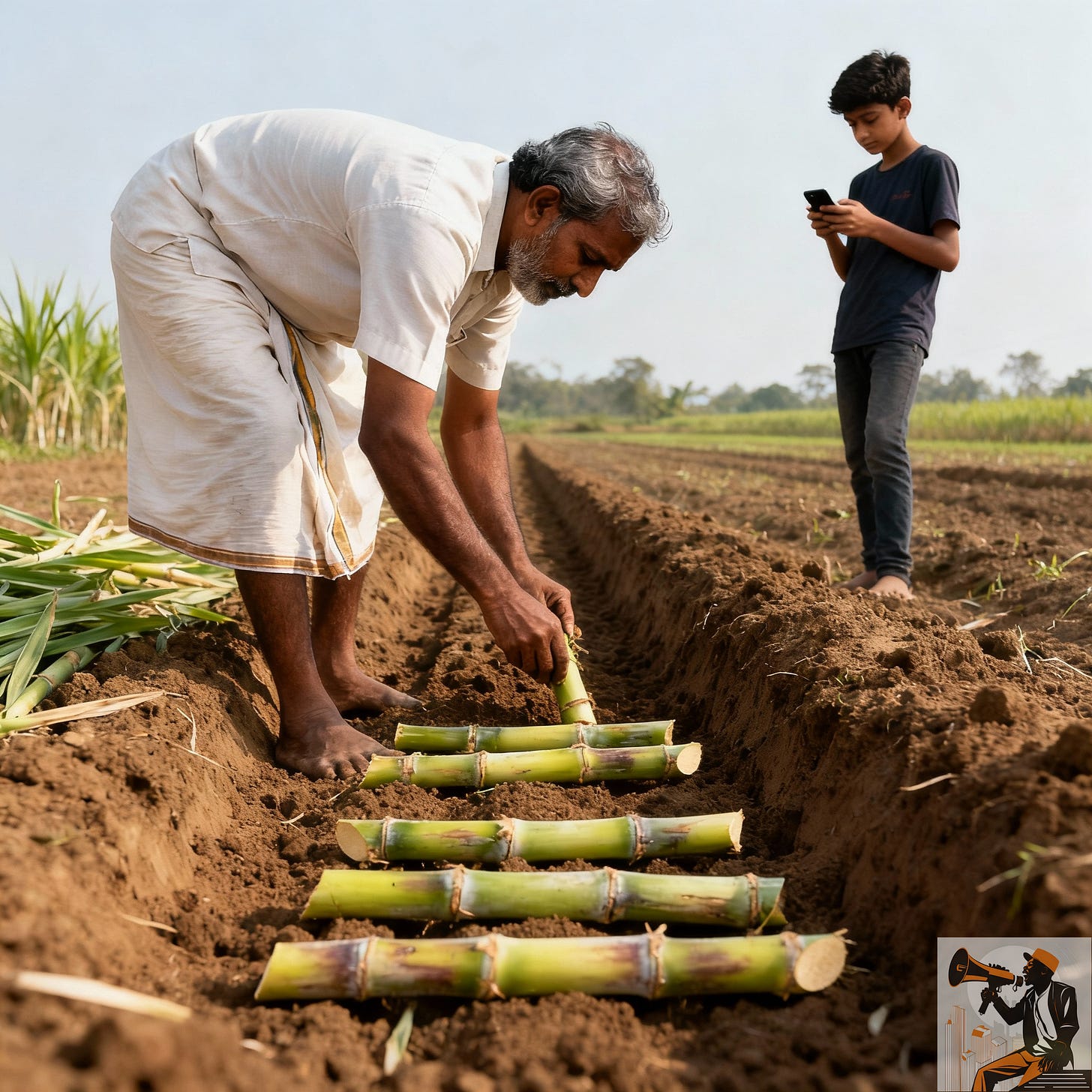There’s this moment that hits me every time I leave Mumbai. The traffic thins, the concrete gives way, and suddenly I’m looking at fields that have been worked by families for generations. I make it a point to visit relatives in the villages. It feels less like nostalgia and more like bearing witness.
Here’s what I see: aging hands working the land. Kids who’ve moved to cities for college, for jobs, for futures that don’t involve waiting on monsoons. And farmers thinking about what comes next, whether to sell once the kids are settled, whether to hold on until they can’t anymore, whether to join their children in the city.
Every visit, my heart worries a little more.
The math is brutal. The youngest generation has done the calculation and it doesn’t add up. Why stay when the city offers certainty, or at least the illusion of it? I can’t blame them. I’m one of them, the one who left, got an MBA, traded fields for Excel sheets. My grandfather used to work extensively in sugar cane fields. I have no idea how to do that work. Not even the basics. When to plant based on soil moisture, how to recognize when cane is ready for harvest, which varieties work in which conditions. All of it gone in a single generation. And here’s what keeps me up, when this generation of farmers is gone, what happens to those farms? Who remembers how that particular plot drains in heavy rain, which rotation works best, where the soil is sweetest?
We talk about knowledge transfer in business schools. Document everything, we say. But farming isn’t a knowledge management problem. It’s thousands of small calibrations passed down through demonstration and correction. It’s knowing things you can’t quite explain but you absolutely recognize when you see them done wrong.
And once it’s gone? It’s gone.
The wishful farmer in me, the part that never quite left the village hopes we won’t trade all our farms for buildings and factories. Not because there’s anything wrong with buildings and factories. We need those too. But there’s a threshold, isn’t there? A point where we’ve traded so much that we can’t trade back.
I think about my relatives getting older. I think about their children, managing their own struggles in cities but thinking of it as progression. And I think about those fields, which might become something else entirely in a generation or two.
Maybe I’m romanticizing. Probably I am. And it’s easy for someone like me who chose the city, who benefits from that choice every day to feel sentimental about a way of life I’m not actually living.
But here’s what scares me: we’re not just losing farmers. We’re losing the accumulated wisdom of what it means to work with the land rather than simply extract from it. We’re losing people who understand that you can’t quarter-end your way through a growing season, that some things simply take the time they take.
The transition happens quietly. A farmer’s body gives out before their will does, and they move to be with children in the city. Or they pass away, and the land gets sold or leased. Each time, another thread of knowledge disappears.
The land will still be there after this generation. What won’t be there is the living memory of how to care for it. And once that’s gone, can we ever really get it back?
I don’t have answers. Just this growing unease every time I make that drive from Mumbai. Just this sense that we’re in the middle of a transition whose full costs we won’t understand until it’s too late to reverse.



